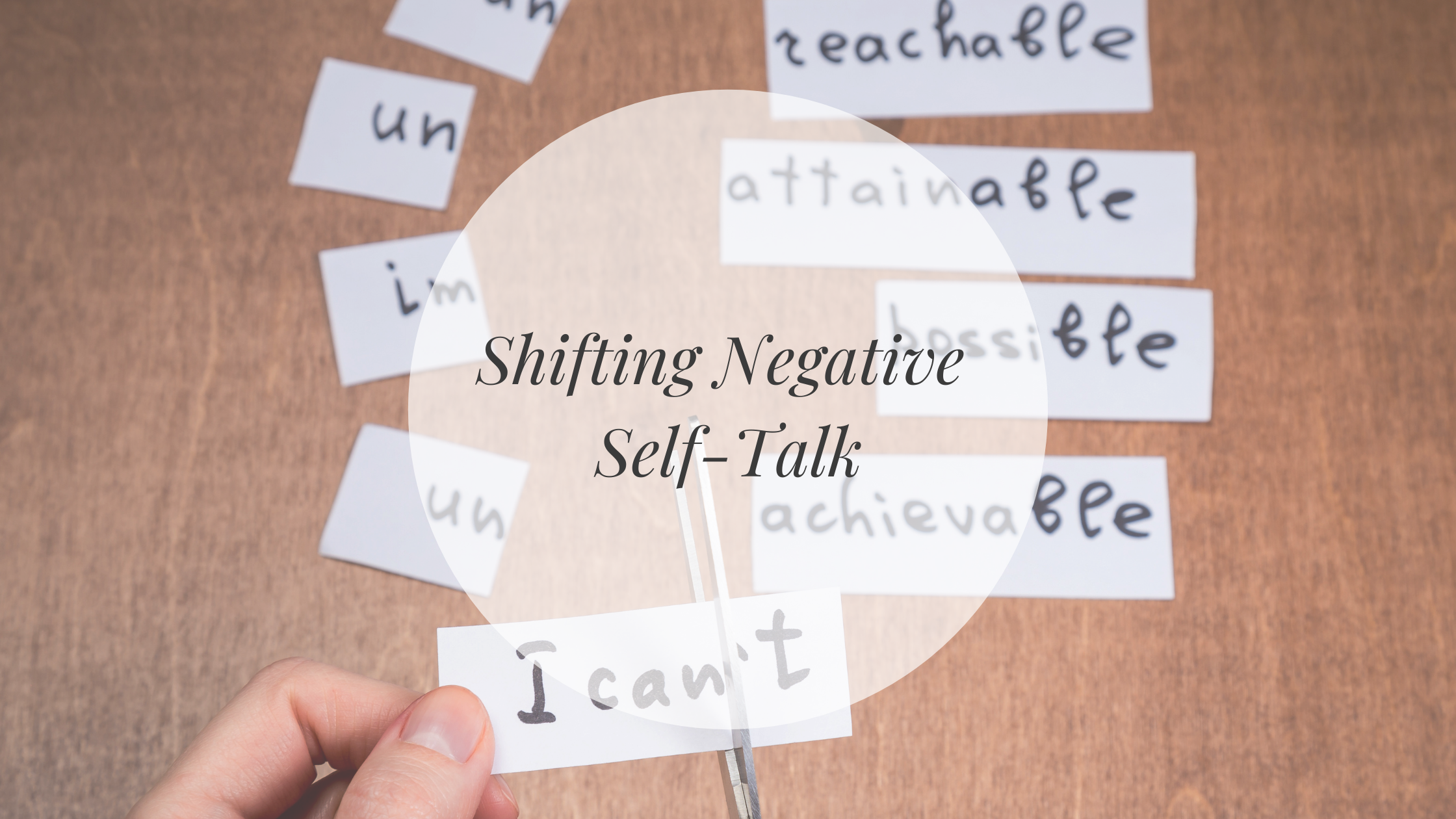Shifting Negative Self-Talk
What story are you telling yourself that isn’t supporting you to be who you truly are?
I have a funny, enthusiastic, smart client who is full of shame over things she knows aren’t worth the stress and overwhelm it causes her. For example, she was telling herself that she was a disgusting person when dishes piled up in her kitchen sink. We coached about the negative self-talk and how she wanted to change that story. An answer came for her by changing her behavior which helped her shift the story she was telling herself.
Many of my clients tell similar stories, but they all have the same pattern – negative self-talk turns to rumination, which turns to shame. When put in perspective, they often see that the jumps they are making aren’t reasonable. Why does this happen?
Many people with ADHD internalize the negative criticizing they hear from teachers, bosses, friends, family, and significant others until it becomes how they talk to themselves. Most of these criticizers are clueless about the damage they are doing, but it is still damaging.
There are ways to shift the negative self-talk:
- Learn about ADHD – read a book or blog, watch videos, or listen to a podcast. Be sure whatever you choose to do, the people who wrote, are filmed or are talking know what they are talking about. There is a lot of misinformation out there. Click here for some recommendations and scroll down. For book suggestions, click here and scroll down. These are all the books I have read.
- Once you have learned about ADHD and yourself, you can better hear when the negative self-talk creeps in. Throw up a red flag! Then pause to determine, is this me or a challenge of my ADHD? There will be days that the ADHD challenges win. That is okay because there are days that the strengths of ADHD win too!
- Acknowledge the negative self-talk or shame and step outside of it. Ask yourself some questions like:
- What is your proof that
- Do people think X about me?
- I am not good enough to X?
- What proof do I have that X isn’t true?
- What is your proof that
- It sounds simple to say change your language or stop criticizing yourself. So try to add the word “but” and then something positive. Here are some examples:
- I always fail when I speak in public, but this is a topic I am comfortable with, and I have a lot of knowledge in this subject.
- I feel unworthy of X’s praise, but I did work hard to make the project successful by doing…
- I have so many failed romantic relationships, but they have given me opportunities to learn from for this new relationship.
- Like my client, who decided to change her behavior, try to approach something differently. For example, if you have negative self-talk about studying in your bedroom because you always get distracted – think of a place that doesn’t have distractions. If you have negative self-talk about how you react when you get upset or hurt by what others say, try walking away without responding, asking for a moment to think before responding, asking to discuss it later, taking some deep breathes, writing down what you want to say but know you shouldn’t, or anything else that isn’t what you are currently shaming yourself for doing.
- Allow yourself to feel, name the emotion, and then process it – let break this down a little further.
- Allow yourself to feel – often, people with ADHD are so in their heads they forget about the rest of them. Our bodies can hold knowledge too. So get comfy, take a couple of deep breathes and scan your body starting from the top. Most of my clients hold feelings in their chest or abdomen, but some carry them in their neck and shoulders. Once you have found your emotions…
- Name it but specific. There are nuances to words. Improving your emotional vocabulary can help name precisely what you are feeling. For example:
- Exhilarated, jovial, and pleasant are all forms of happiness.
- Despondent, melancholy, and subdued are all forms of depression. But obviously, despondent is far more severe.
- Petrified, nervous, and cautious are all forms of fear.
- Once you have found the right word, process it. How you process will depend on your natural processing modalities. Some people might want to talk about it; some may wish to write about it; some may want to move their bodies by working out or go for a run, and some may like the idea of creating a visualization to let it go. Without processing it, the emotion will ruminate.
- Question those criticisms. Put yourself in that person’s point of view. Do they understand how your brain works? Do they have your best interest in mind? Are they sincerely trying to help you grow? Answering these questions can help you decide how much weight their comments are worth to you.
Shifting your negative self-talk is a process. Do what you can today and accept and appreciate any move forward. Then do what you can another day and so on.

Big Bang Coaching, LLC provides coaching for the neurodiverse.













